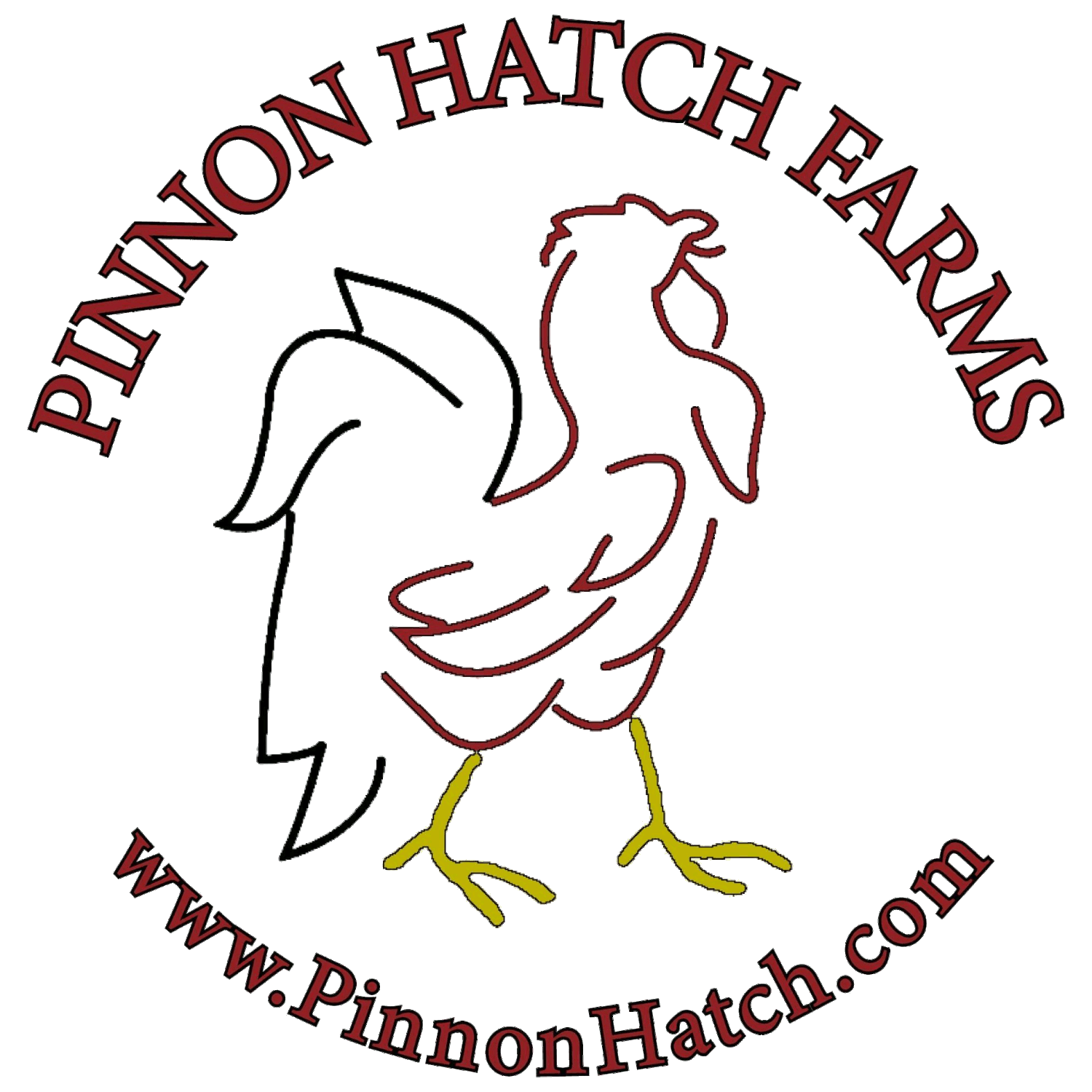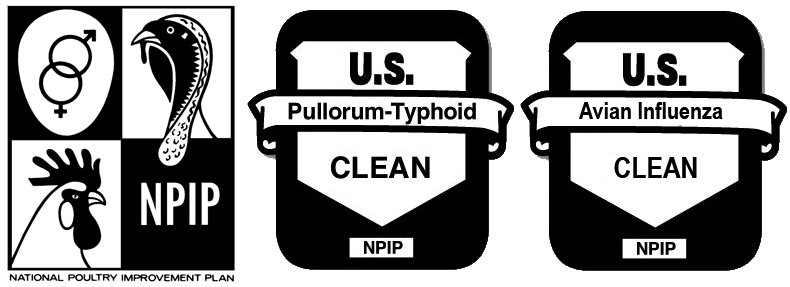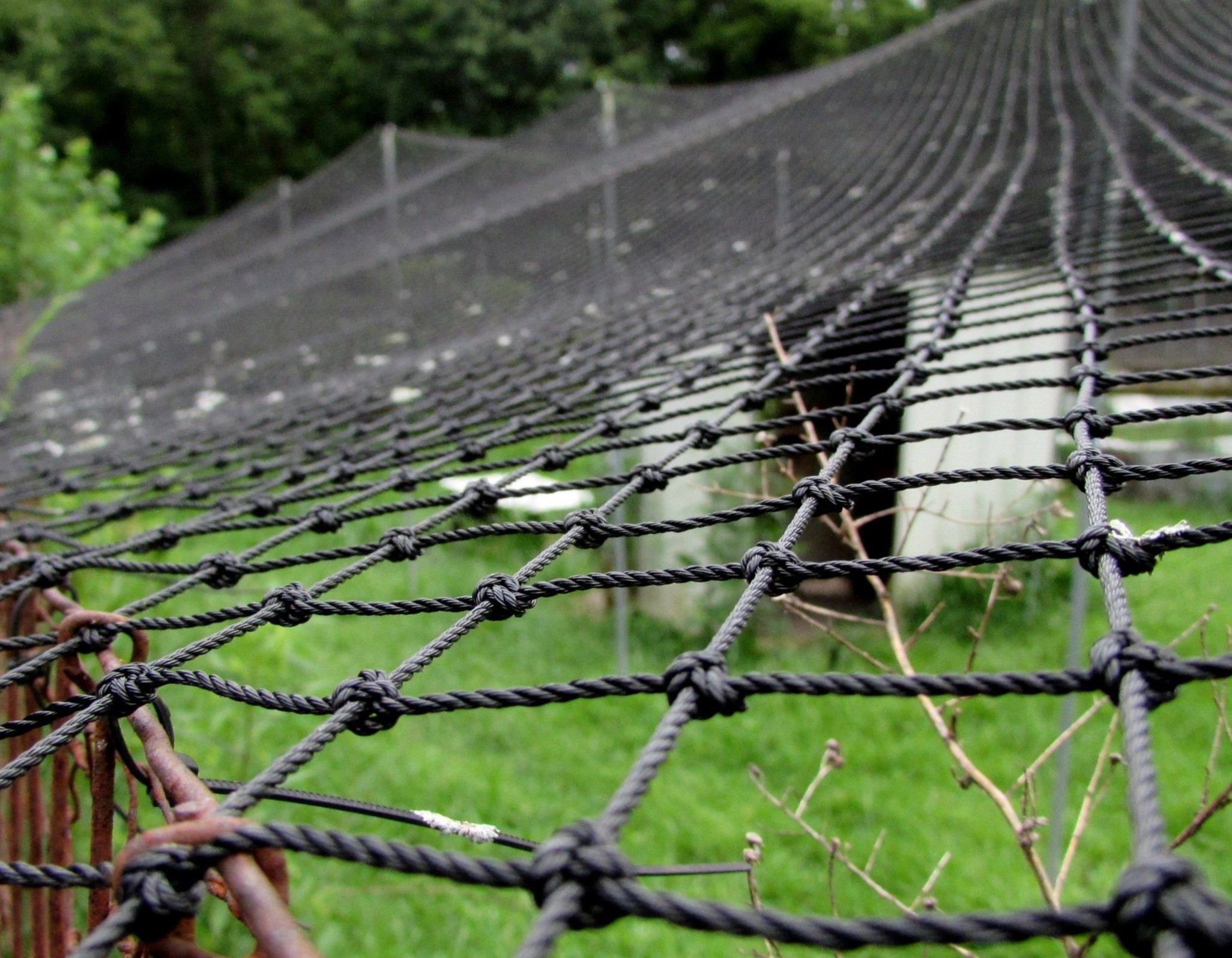
Bio Security & Avian Influenza
What are we doing on Pinnon Hatch Farms?
We are NPIP Compliant.
We are NPIP compliant. The USDA comes out to test our birds regularly to test our birds
We limit foot traffic in our pens.
Only a handful of people are allowed around our birds to prevent infection from getting tracked into the pens on anyone’s shoes.
We keep wild birds out!
All of our pens are covered with a 1” mesh netting to keep wild birds out of our pens. The main way avian influenza is spread is through wild birds. Keep wild birds of your pen and you will greatly reduce the chances of your flock being contaminated.
We use 1” Heavy Knotted Poultry Netting on our Pens. Not only does this netting work great for keeping wild birds from spreading disease but it is also great at keeping predators our. This is a really strong netting with a 85/245lb per mesh break/burst rating. It is kind of a pain to install and we don’t like to do it often. That’s why we use a highly UV resistant material to make sure it lasts for a really long time. The pictured netting is almost 9 years old and still extremely strong.
Protecting your flock from HPAI during an outbreak
You can protect your flock by being mindful and using biosecurity.
Avoid attracting wild birds to your residence.
Cover or enclose any outdoor feeding areas for poultry.
Promptly clean up any feed spills.
Avoid visiting any ponds or streams, especially with pets.
Consider reducing large puddles and standing water that may be a nice resting place for migratory birds.
Limit or halt any travel with your birds to sales, shows, and swaps.
Ensure you have clean hands, clothes, and footwear before handling your birds if you do attend any poultry events.
Do not allow others to handle your birds.
Limit who visits your birds at home.
If someone else must visit your birds:
Ask them about what other bird contact they have recently had.
Ask them to wash their hands and wear clean clothes and footwear.
What is Avian Influenza?
Avian influenza (AI) is a disease that affects domestic poultry including: Chickens, Turkeys, Pheasants, Quail, Ducks, Geese
Waterfowl and shorebirds are natural hosts for the avian influenza virus. These birds will shed the virus, often without showing signs of illness.
Highly pathogenic avian influenza (HPAI) is rapidly fatal for poultry. Sudden onset of HPAI and high death rates are common among all poultry (except ducks and geese).
In chickens, HPAI signs often include respiratory (gasping) and digestive (extreme diarrhea) signs followed by rapid death. Chickens may have swelling around the head, neck, and eyes. The heads and legs may also have purple discoloration.
Other poultry species, including turkeys, may have nervous symptoms such as: Tremors, Twisted necks, Paralyzed wings, Laying down and pedaling
Public risk is very low with no food safety concerns because infected birds don’t reach the market. Infection risk normally only exists for people in direct contact with affected birds.
Always properly handle poultry and eggs and cook to an internal temperature of 165 F. Don’t eat birds that appear sick or have died for reasons unknown.
Stopping the spread of HPAI
Birds are euthanized on farms confirmed with HPAI. Flocks within a 6-mile radius of a confirmed case will be tested for HPAI. These flocks will also be checked throughout the outbreak. Euthanasia will only occur on-premises with infected birds. Financial reimbursement will be provided if your flock is euthanized under the Minnesota Board of Animal Health or USDA care.
Signs of illness
Detecting HPAI early is key to limiting the spread. Sadly, one of the first signs of HPAI is sudden, unexplained death. In 2022, most HPAI cases report poultry drinking less water before unexplained death.
Egg layers may show signs of depression, have ruffled feathers, and be quieter than normal. Other signs may include purple or dry combs.
Turkeys may be quiet and depressed, lay down more than normal, and have swelling around their eyes.
Waterfowl do not always die from HPAI or show signs of illness, but they can carry the virus and spread it to other birds.


